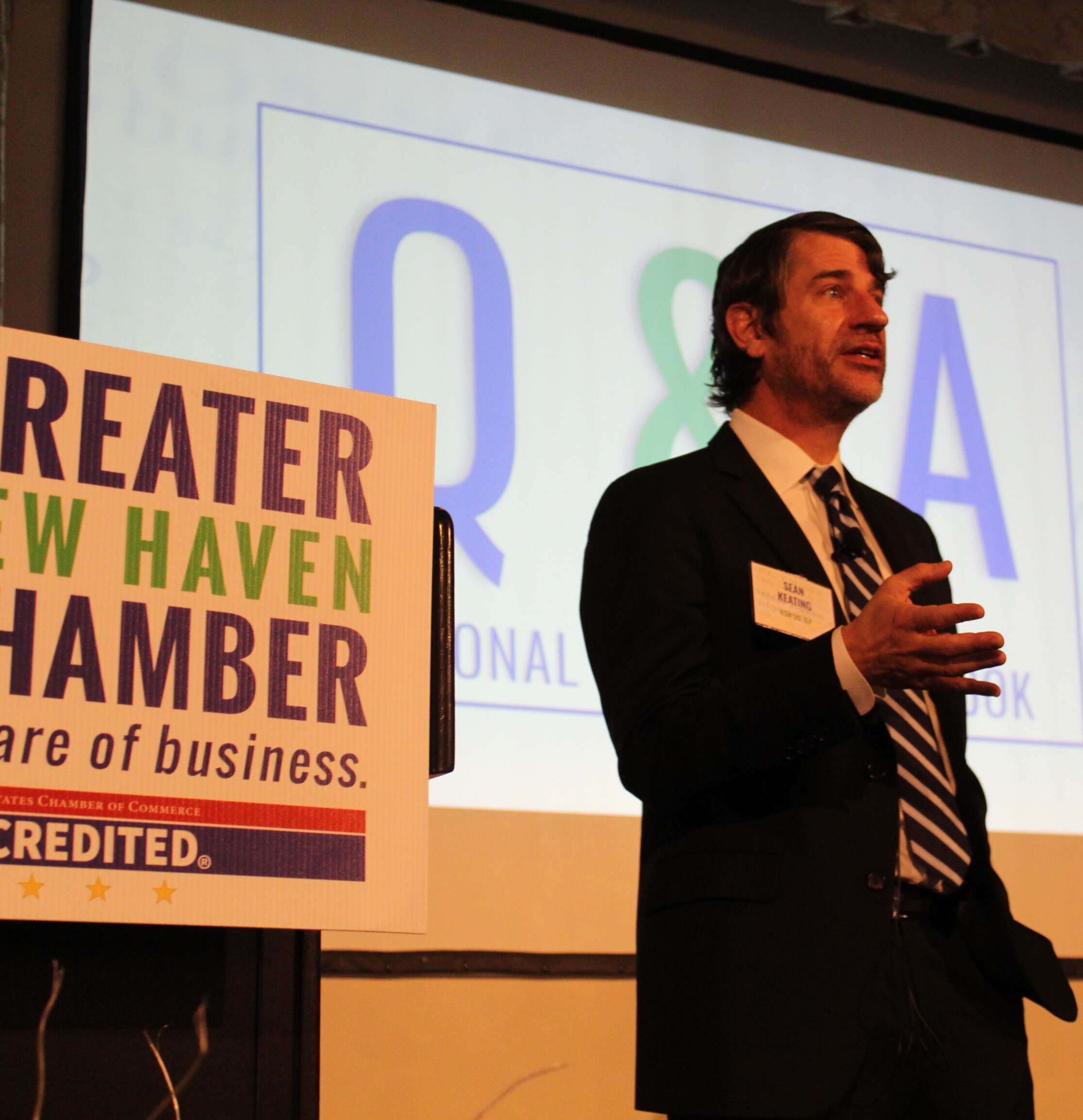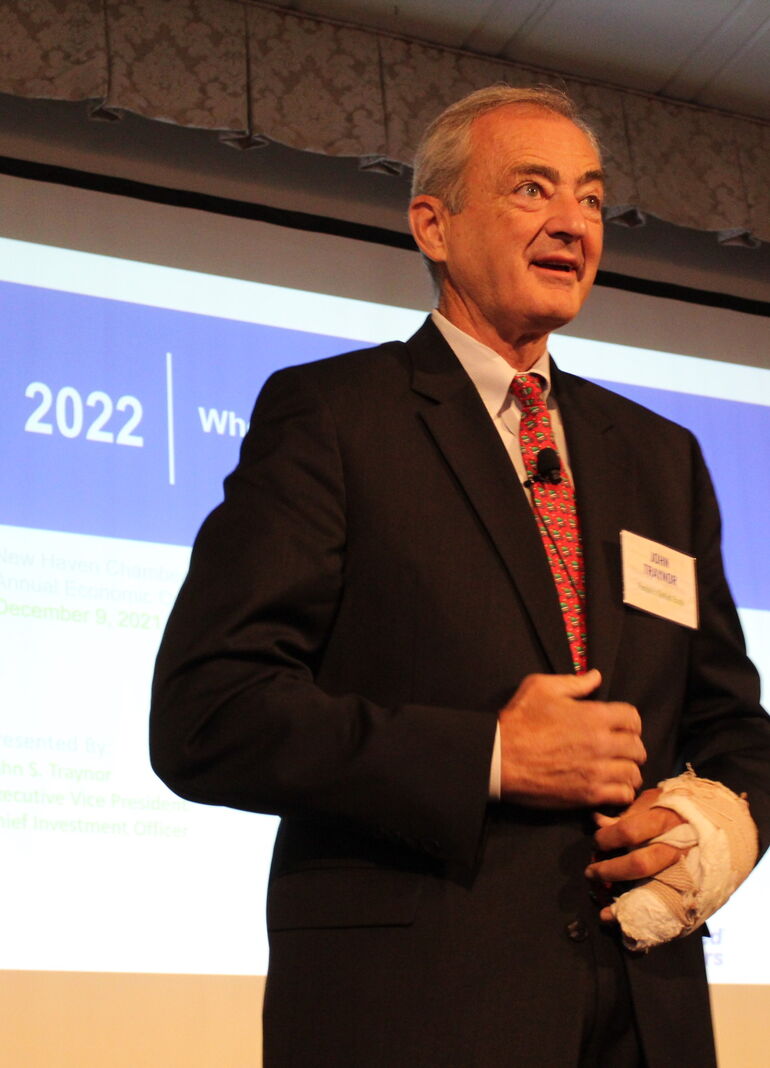
Processing Your Payment
Please do not leave this page until complete. This can take a few moments.
-
News
-
Editions
-
- Lists
-
Viewpoints
-
HBJ Events
-
Event Info
- 2024 Economic Outlook Webinar Presented by: NBT Bank
- Best Places to Work in Connecticut 2024
- Top 25 Women In Business Awards 2024
- Connecticut's Family Business Awards 2024
- What's Your Story? A Small Business Giveaway 2024 Presented By: Torrington Savings Bank
- 40 Under Forty Awards 2024
- C-Suite and Lifetime Achievement Awards 2024
- Connecticut's Health Care Heroes Awards 2024
-
-
Business Calendar
-
Custom Content
- News
-
Editions
View Digital Editions
Biweekly Issues
- April 29, 2024
- April 15, 2024
- April 1, 2024
- March 18, 2024
- March 4, 2024
- February 19, 2024
- February 5, 2024
- January 22, 2024
- January 8, 2024
- + More
Special Editions
- Lists
- Viewpoints
-
HBJ Events
Event Info
- View all Events
- 2024 Economic Outlook Webinar Presented by: NBT Bank
- Best Places to Work in Connecticut 2024
- Top 25 Women In Business Awards 2024
- Connecticut's Family Business Awards 2024
- What's Your Story? A Small Business Giveaway 2024 Presented By: Torrington Savings Bank
- 40 Under Forty Awards 2024
- C-Suite and Lifetime Achievement Awards 2024
- Connecticut's Health Care Heroes Awards 2024
Award Honorees
- Business Calendar
- Custom Content
Chamber’s ‘Economic Outlook’ centers on workplace issues, tax trends
 PHOTOS | Liese Klein
People’s United Bank Executive Vice President And Chief Investment Officer John Traynor speaks at the Regional Economic Outlook event hosted by the Greater New Haven Chamber of Commerce at the New Haven Lawn Club on Dec. 9, 2021.
PHOTOS | Liese Klein
People’s United Bank Executive Vice President And Chief Investment Officer John Traynor speaks at the Regional Economic Outlook event hosted by the Greater New Haven Chamber of Commerce at the New Haven Lawn Club on Dec. 9, 2021.
Retiring early to Maine was a dream come true for one People’s United Bank employee, but it was a bit of a nightmare for his boss.
John Traynor, executive vice president and chief investment officer at People’s, recently lost a key portfolio manager, who retired at age 62 to eat lobster up north. The employee’s decision reflects several trends that threaten New Haven-area companies in a market where highly skilled workers are at a premium.
“One of the reasons for workers leaving is that a lot of their financials are in great shape,” Traynor said. Many younger Baby Boomers have healthy savings and are opting to quit work early due to fears of COVID-19 and other factors.
“Not only are you as employers having trouble finding people, you’re also going to be losing some of your best people,” Traynor said.
Traynor highlighted the challenges of a shifting workforce at Thursday’s Regional Economic Outlook event hosted by the Greater New Haven Chamber of Commerce at the New Haven Lawn Club.
One number Traynor cited was a finding by the Federal Reserve Bank of St. Louis that 3 million retirements in excess of what were expected took place during the pandemic, with the expectation of a permanent loss of 2 million workers. Those losses come as younger workers increasingly opt out of employment altogether and others are more likely to switch jobs.
“You’ve got to figure out how to get them back,” Traynor said of older workers, who can be invaluable in mentoring the next generation at a company. “We need to bring the young people into the marketplace and we need to hold on to the older ones.”
Employers can help by offering skills training and mentoring to attract new workers, along with flexible schedules and working conditions to existing workers. Women especially may need more leeway on scheduling as pandemic-related challenges related to schools and caregiving continue.
“One of the issues I learned during the pandemic is that as a manager, as a boss, I have to be much more flexible,” Traynor said.
Tax time
On the tax front, RSM Partner Sean Keating warned the chamber audience of a newly-funded and motivated Internal Revenue Service that has stepped up enforcement during the Biden Administration.
“We’re definitely seeing IRS audits starting to tick up,” Keating said. “It’s important to be audit-ready as we move into the next couple of years.”

RSM Partner Sean Keating at the Regional Economic Outlook.
Federal tax changes under Biden are tending to claw back tax breaks given under prior administrations, Keating said. Under current proposals, most new taxes are squarely aimed at top-200 companies and high-net-worth individuals.
Connecticut businesses should take note of delays in phasing out of state taxes like the 10% corporate business tax surcharge, extended through 2022. Gov. Ned Lamont also pushed back the start of the phaseout of the capital base tax, which affects entrepreneurs, from Jan. 1, 2022 to Jan. 1, 2024.
One positive development is the state’s tax amnesty program, set to continue through Jan. 31. The amnesty program is a prime opportunity to resolve longstanding tax issues and may not recur anytime soon, Keating said.
“Get it cleaned up today,” Keating said.
Contact Liese Klein at lklein@newhavenbiz.com.

2022 Giving Guide
This special edition informs and connects businesses with nonprofit organizations that are aligned with what they care about. Each nonprofit profile provides a crisp snapshot of the organization’s mission, goals, area of service, giving and volunteer opportunities and board leadership.
Learn more
Subscribe
Hartford Business Journal provides the top coverage of news, trends, data, politics and personalities of the area’s business community. Get the news and information you need from the award-winning writers at HBJ. Don’t miss out - subscribe today.
Subscribe
2024 Book of Lists
Delivering Vital Marketplace Content and Context to Senior Decision Makers Throughout Greater Hartford and the State ... All Year Long!
Read Here-
2022 Giving Guide
This special edition informs and connects businesses with nonprofit organizations that are aligned with what they care about. Each nonprofit profile provides a crisp snapshot of the organization’s mission, goals, area of service, giving and volunteer opportunities and board leadership.
-
Subscribe
Hartford Business Journal provides the top coverage of news, trends, data, politics and personalities of the area’s business community. Get the news and information you need from the award-winning writers at HBJ. Don’t miss out - subscribe today.
-
2024 Book of Lists
Delivering Vital Marketplace Content and Context to Senior Decision Makers Throughout Greater Hartford and the State ... All Year Long!
ABOUT
ADVERTISE
NEW ENGLAND BUSINESS MEDIA SITES
No articles left
Get access now
In order to use this feature, we need some information from you. You can also login or register for a free account.
By clicking submit you are agreeing to our cookie usage and Privacy Policy
Already have an account? Login
Already have an account? Login
Want to create an account? Register
Get access now
In order to use this feature, we need some information from you. You can also login or register for a free account.
By clicking submit you are agreeing to our cookie usage and Privacy Policy
Already have an account? Login
Already have an account? Login
Want to create an account? Register






0 Comments